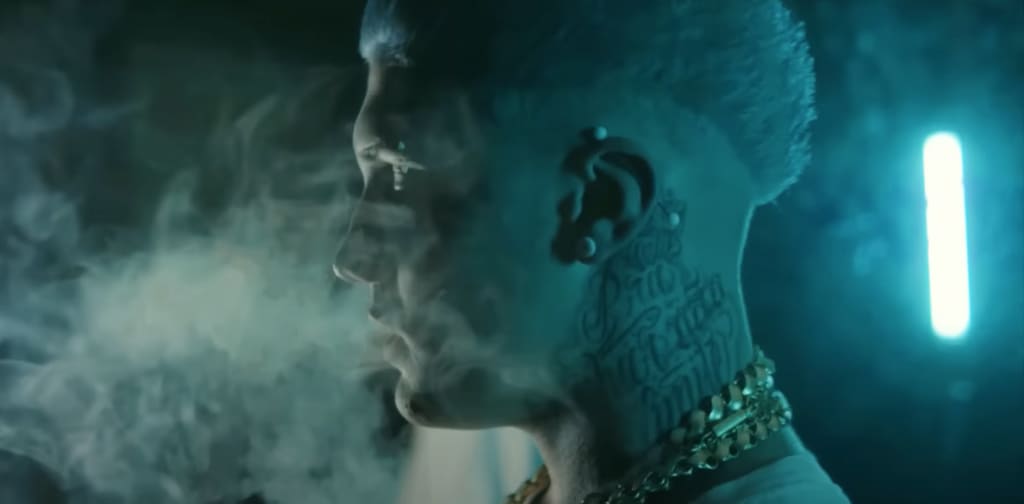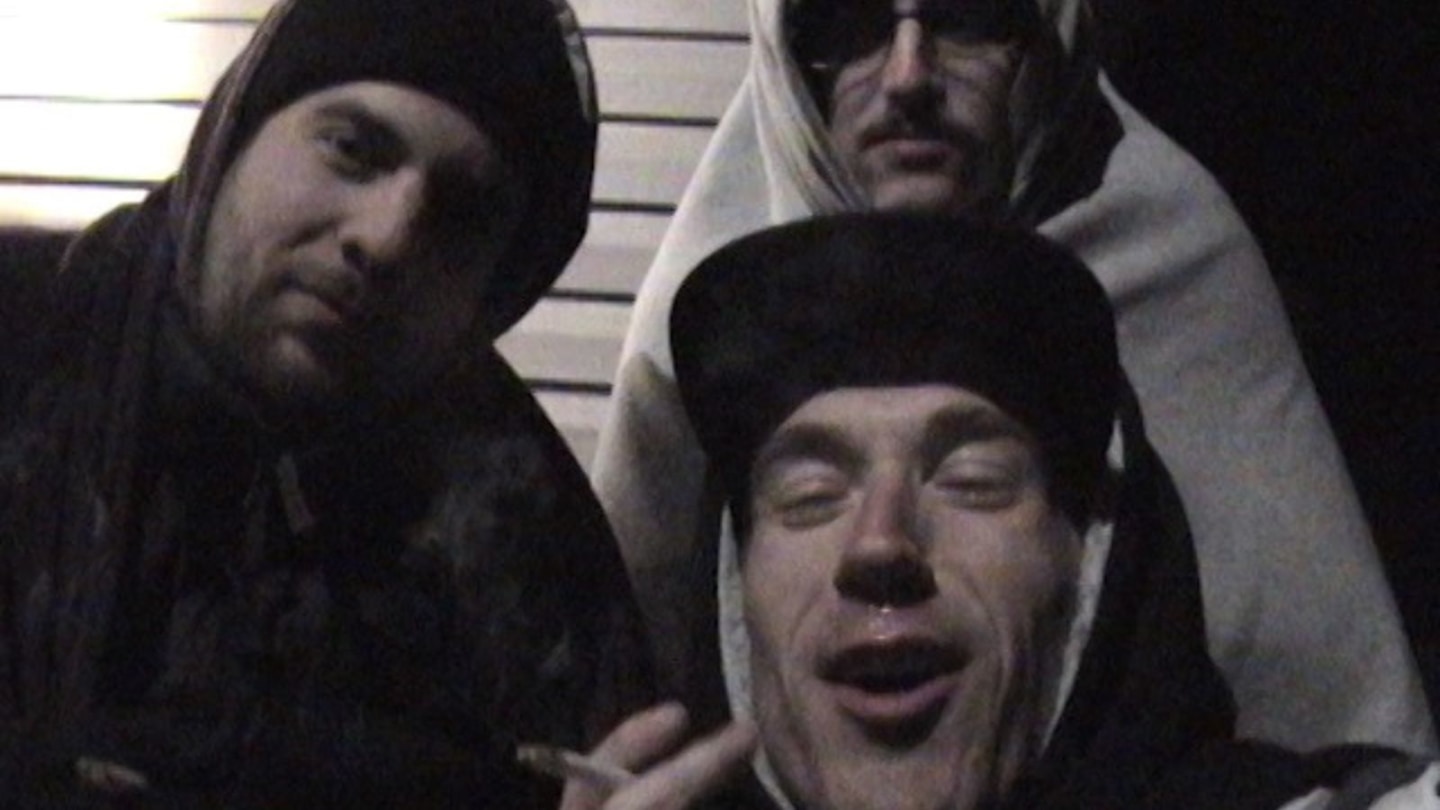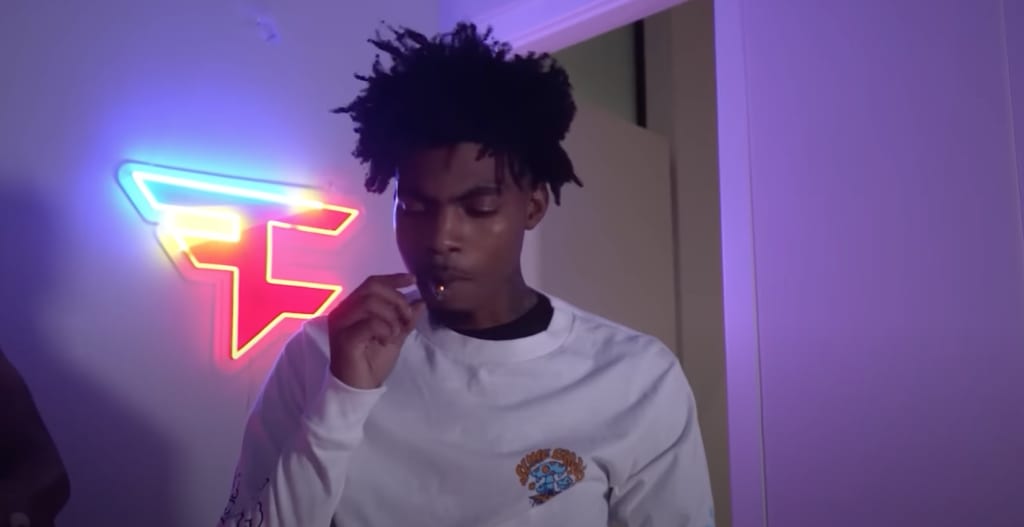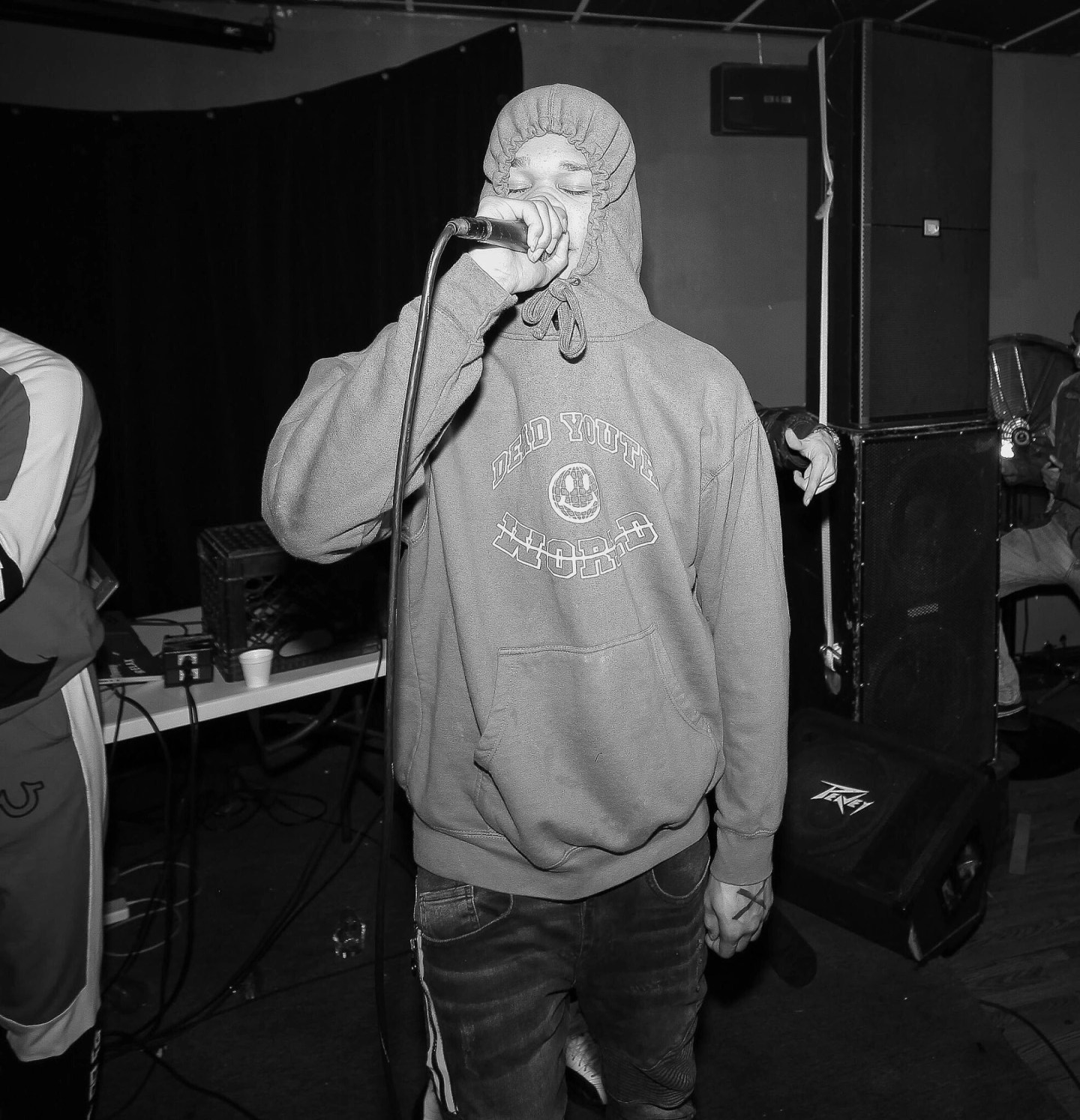Rap Blog is a weekly showcase of a standout rap song written by Vivian Medithi and Nadine Smith.
Baile funk’s roots might be in Rio de Janeiro, but these days its most daring new frontiers are more often heard in São Paulo. Born from the sprawling favelas that circle the metropolis, the “paulista” scene has given rise to some of the most daring underground mutations of funk, from the bewitching bruxaria sound to the rap-influenced flexes of funk ostentação. DJ Wesley Gonzaga embodies that ostentatious style, both in the hard-partying haze that coats his work and his nose-thumbing approach to sampling.
If the bleary-eyed sound wasn’t enough, the cover of Gonzaga’s latest album Antidepressivo lets you know right away that this is a soundtrack to trip to, all blue and green streaks as a pill dissolves on the DJ’s tongue. Though it’s certainly possible to appreciate baile funk without the assistance of conscious-altering substances, it’s difficult to completely separate funk from the context of drug music — the high-pitched squeals and shrill alarms you often hear in funk tracks, a sound described as “tuin,” are intended to trigger the state of auditory hallucination associated with lança perfume, an ether-like inhalant popular in Brazil’s underground club scene. The reverb delirium of tracks like “2 Puta de 1 Vez” recall the eerie hauntology of early cloud rap and Clams Casino-type beats, while other tracks channel the flanged-out ecstasy of trance music. Completely unpredictable sample choices collide into the periphery like party-crashers: “Tipo Cena de Novela” flips a coffee-shop ukulele cover of “Hotline Bling,” of all things.
But it’s the almost-title track “Mega a Cura Antidepressiva” that best demonstrates baile funk’s unique capacity to hijack recognizable cultural reference points and completely repurpose them into something that’s not just new and unfamiliar, but unapologetically Brazilian. A woozy chop of Rihanna’s “Umbrella” crawls through a murky stream of vocal effects before Gonzaga joins the pop star in a distorted duet: to the tune of Rihanna’s hook, he starts to sing “favela-ela-ela,” taking something universal and making it distinctly local, a tribute to the inventiveness of a culture that’s crafted its own new language from the leftover scraps on hand.




